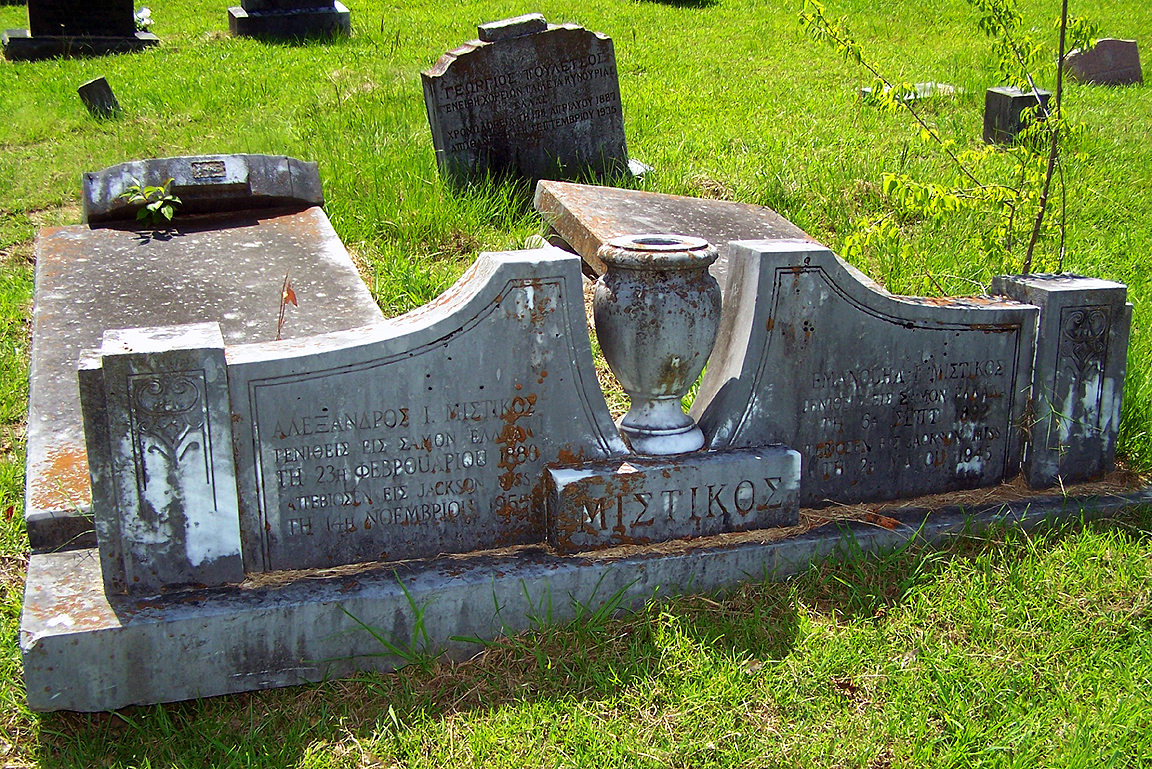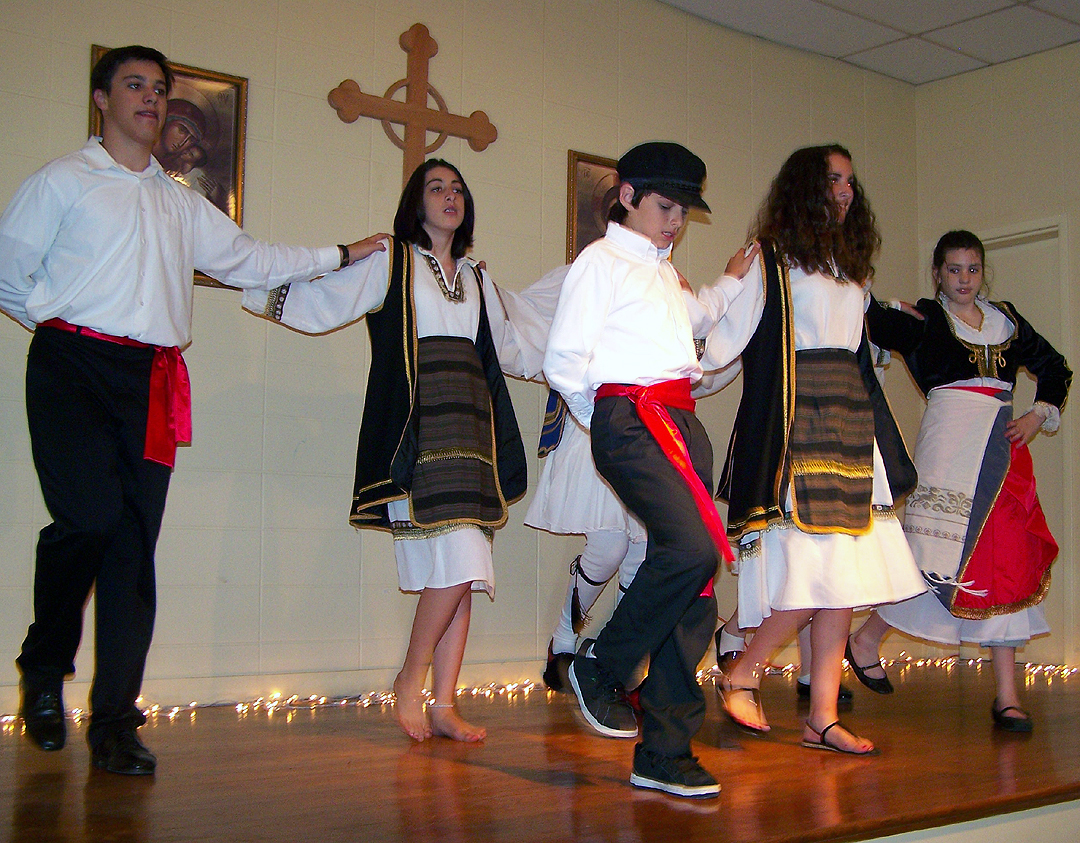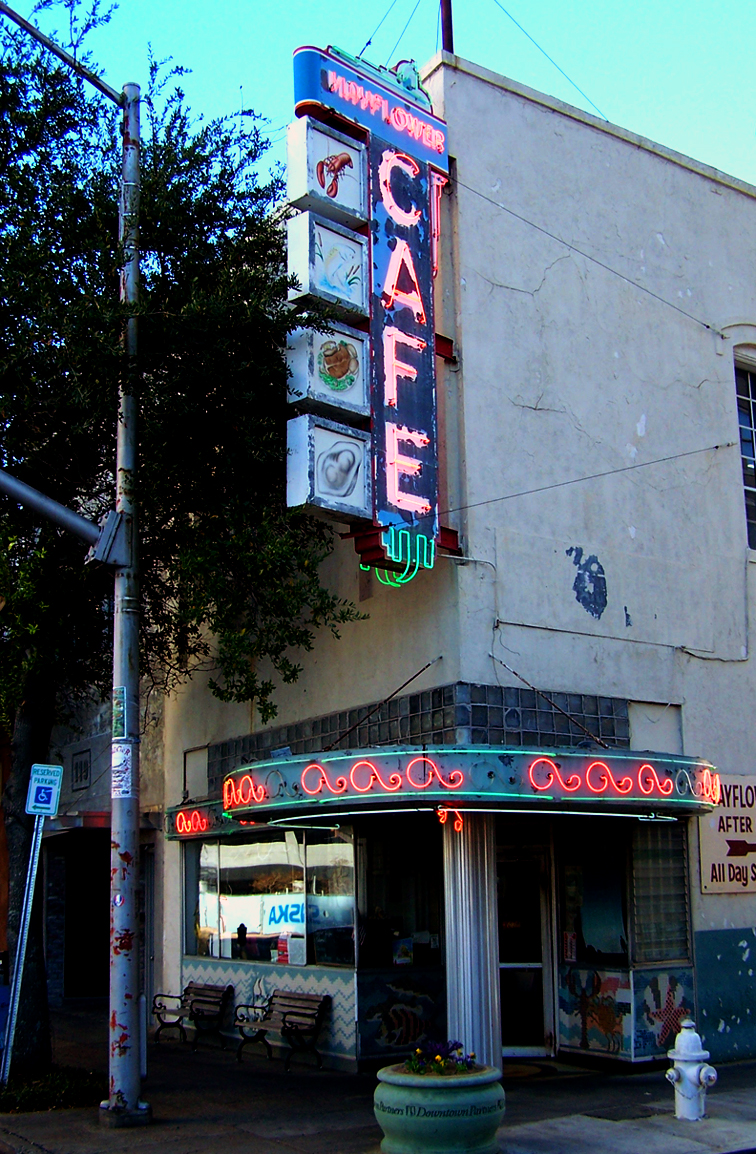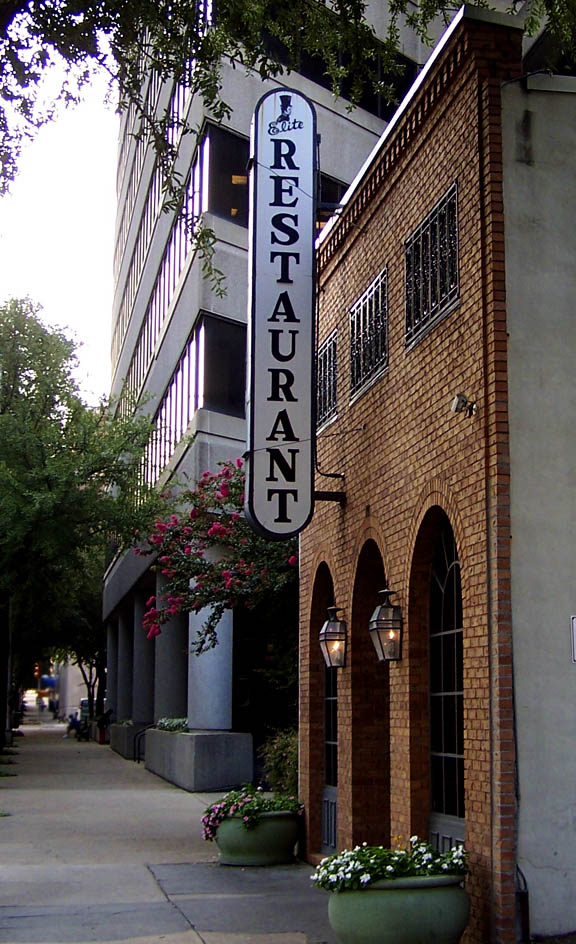Originally published in 2009, this article remains one of the few substantial accounts of our Greek neighbors, who both as individuals and as a community have vastly enriched this city.
With the fascinating exception of Tarpon Springs, Florida, where an old country industry found new life, most Greek immigrants settled in the northeast. But according to Ellen Hontzas, most of the immediate ancestors of Jackson’s families were from the South.

“I was born here, but my daddy Anthony Tattis was from Mobile,” Ellen says. “He was in the Air Force, stationed here, and I was born at the air base (now Hawkins Field). I lived in what was called the ‘GI village’, on Avalon, but most of the other Greeks lived in west and south Jackson. Just about everything we did centered on the church.”
Indeed, the Greek Orthodox Church makes up the heart of the community. Dr. Virginia Cora, a member for over forty years, says, “The church and its calendar provide structure for the changing of seasons; these traditions may be less strictly observed now, but still are important.”
The Rev. Fr. Christopher Harner, presiding priest at Holy Trinity & St. John the Theologian at 1417 West Capitol Street, says, “It’s intriguing to note that this parish, the reason it is double-named is because the members of the original founding group were never able to agree on one common name. Normally, if a parish is double-named, it is because there was a split in the community that was healed and both sides came together. This parish is somewhat unique in that it started with groups of people who were not able to agree on a particular name.”

“I grew up in New York with a father from Greece and an American mother,” says Laura (Stamatakis) Orr. “I got the best of both worlds. They raised me in a large Greek community, but when I was young my family moved to California to an even bigger Greek community. I even had my own big fat Greek wedding in a Greek Orthodox cathedral in Los Angeles.”
“My husband and I decided to move here to Mississippi, where he is from, about 2 years ago, Laura says. “It was a very difficult choice, leaving my parents, my friends and my church, but we now enjoy a special yet different experience, a small community that welcomed us with open arms, one that was built by the first families that arrived in this part of the South.”
“The family includes nuclear and extended family both here and in the old country, as well as church family,” Virginia Cora says. “Any occasion calls for a gathering, especially birth days or name days, Easter and Epiphany.”
Virginia says that she, her friends and family savor life in the moment. “We do love to eat, dance, and celebrate the occasion, any occasion. Feast days usually have favored foods associated with them, certain breads like tsoureki for Easter and Christopomo for Christmas, vasilopita for New Year, and pitas or cookies for other holidays.” Virginia says that meals including appetizers, entrées, and desserts are consumed casually over several hours. The music tends to be traditional folk music with dancing and sing-a-longs like syrtaki, hassapiko and tsimako. Drink includes beers and wines consumed with meals and in moderation, especially retsina (resinated white wine), kokkineli, Metaxa and ouzo.


Kanellos Katsaboulas, proprietor of Kat’s Wine Cellar, says, “My father did own a restaurant, Christos’ Deli, but that was more of a side hobby that he had. His primary business was Katsaboulas Tile and Marble, which was in operation for over 35 years.”
“It’s a real close community. My brother (Tasho) and I both grew up in the Greek church, went to Greek school. My father was Greek, my mother was from Mississippi, and we grew up with both influences. Having my Geek grandmother living with us was wonderful. She barely spoke English, but she cooked for us every night and involved us in the culture. We called her ‘Yama’. She came from the Peloponnese, and she and her husband moved here in the 30s. My father, Carnellas Katsaboulas, was born here, but his two brothers were born in Greece.”
“All these Greek families that I grew up knowing were very close; I called everybody ‘uncle’. That was the biggest difference between me and the other kids I grew up with. My wife is from here, but I don’t see that element in her family; she has her family, and everybody else is friend or acquaintance, but in the Greek community, you grew up not really distinguishing between who is a blood relative and who isn’t. There was really no difference in the level of respect we held for them.”
“The Jackson community is characterized by devotion to family, culture and church,” Virginia says. “The members are concerned about the welfare of their family and the success of their work. Our people are passionate about their politics, participate in elections and work with community leaders.”
“We have a good name,” Ellen says.
